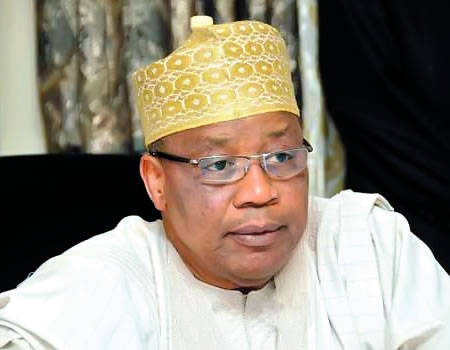
GENERAL Ibrahim Badamasi Babangida comes across as a man grounded in history. His rule over the country was underpinned by Niccolo Machiavelli’s treatise on power as enshrined in The Prince. Suave, smart and stylish, he tactfully deployed Machiavellian tactics to worm himself into the hearts of the people, get ahead of competitors, annihilate opponents as well as rivals, and stretched his unconstitutional tenure for eight years.
General Babangida surrounded himself with some of the best brains in the country right from the onset of his administration to the end. He courted the intelligentsia, identified with boardroom gurus, befriended clerics, associated with activists and related well with women and youths.
In the aspect of infrastructure provision, Babangida’s administration scored an A. He practically built Abuja, the Federal Capital Territory as most of the landmark structures in the FCT came on stream during his regime. He also did well in the area of poverty alleviation as his government established the Directorate of Food Roads and Rural Infrastructure (DIFFRI) in 1986, People’s Bank in 1989, and introduced community banking in 1992.
The self-styled Military President experimented with the economy and the polity. Through his Structural Adjustment Programme (SAP), he introduced commercialization, precursor of the current privatization policy, liberalized the foreign exchange market and opened up the banking industry by licensing many commercial banks. The administration came up with a long-winding transition programme with deliberately installed booby traps to truncate the process. This eventually led the country to the annulled June 12 presidential election debacle, which left the country prostrate and foisted General Abacha on the nation after Chief Ernest Shonekan’s interregnum.
While Babangida must be praised for the good work he did as the nation’s ruler, and may be forgiven for his mishandling of the economy and the polity, he will find it extremely difficult to forgive himself for failing to seize the opportunity he had to build lasting institutions despite the structure he built. Structures are good but they are short-lived, only institutions are eternal. Where is People’s Bank? How many people remember DIFFRI and other projects initiated by the government? They have all become history. Those who build structures and neglect institutions will live to regret it when they leave power or power leaves them.
Babangida presided over the affairs of Nigeria at a time of relative peace, prosperity and unity. Though there were agitations for environmental improvement by Niger Delta people, militancy was unheard of. There were religious skirmishes but they were easily contained. There were protests by youths and students but none got out of control. So, Babangida led this country at a time when definite steps towards transforming the nation should have been taken, but he frittered away the opportunity.
Though a good student of history, Babangida drew inspiration from those on the wrong side of posterity. His heroes were leaders who took advantage of those they led, and he followed in their footsteps. As a result, General Babangida squandered the uncommon opportunity placed on his laps by Providence to put the country on a pedestal that would have made it the Giant of Africa indeed. Instead, he sought to perpetuate himself in office until such a time that it was no longer feasible and had to be eased out of office.
Despite being a military ruler, given his energy, wit, public support and advantage of seemingly unquestionable power, Babangida should have used the privilege of his position to right the wrong of 1966 by devolving power from the centre to the states. Had he done that all the issues about restructuring the country would have since become history and the credit would have gone to him. This is particularly important because restructuring a country like Nigeria, where clannish and religious sentiments becloud reasoning, is extremely difficult in a democracy unless the leaders are very altruistic. In a system where both the legislature and executive members are out to protect selfish interests and cannot sacrifice personal or group interests for national interests, giving away power (which is what restructuring means) will be almost impossible. But these considerations would not have been necessary now had General Babangida acted in the interest of the country when he had the power to do so.
Instead of learning from Lee Kuan Yew, who transformed Singapore from a third world country to a first in 30 years, and Kemal Parsha (Ataturk) of Turkey, who changed Turkey from a medieval mentality to a modern one in a few years by building strong institutions, our own Evil Genius deployed his powers and influence for his own good and the benefit of his cronies. Now, in his old age, instead of reclining in a swinging chair appreciating Providence for finding him useful for the purpose of putting his country on the path of lasting prosperity, he is restless and full of regrets over missed opportunity. He is full of lamentation over misused chances, he is full of sorrow over unutilised advantages.
Babangida’s latter day agitation for power devolution, fiscal federalism and state police is nothing short of regrets which he now nurses in his old age over what he should have done when he wielded the power. But he missed it and now longs for what is long gone.
Leadership is a trust. Failing to deliver on the trust will leave anyone with eternal regrets. That is the case with General Babangida. In his twilight years he cannot rest, he has to keep working to correct his past mistakes. That is the reality of life. Those who dispense their youthful energies on wrong pursuits will run helter-skelter in their old age. But this is less about General Babangida and more about those currently in power. When the party is over how will posterity treat your memory?
WATCH TOP VIDEOS FROM NIGERIAN TRIBUNE TV
- Let’s Talk About SELF-AWARENESS
- Is Your Confidence Mistaken for Pride? Let’s talk about it
- Is Etiquette About Perfection…Or Just Not Being Rude?
- Top Psychologist Reveal 3 Signs You’re Struggling With Imposter Syndrome
- Do You Pick Up Work-Related Calls at Midnight or Never? Let’s Talk About Boundaries






